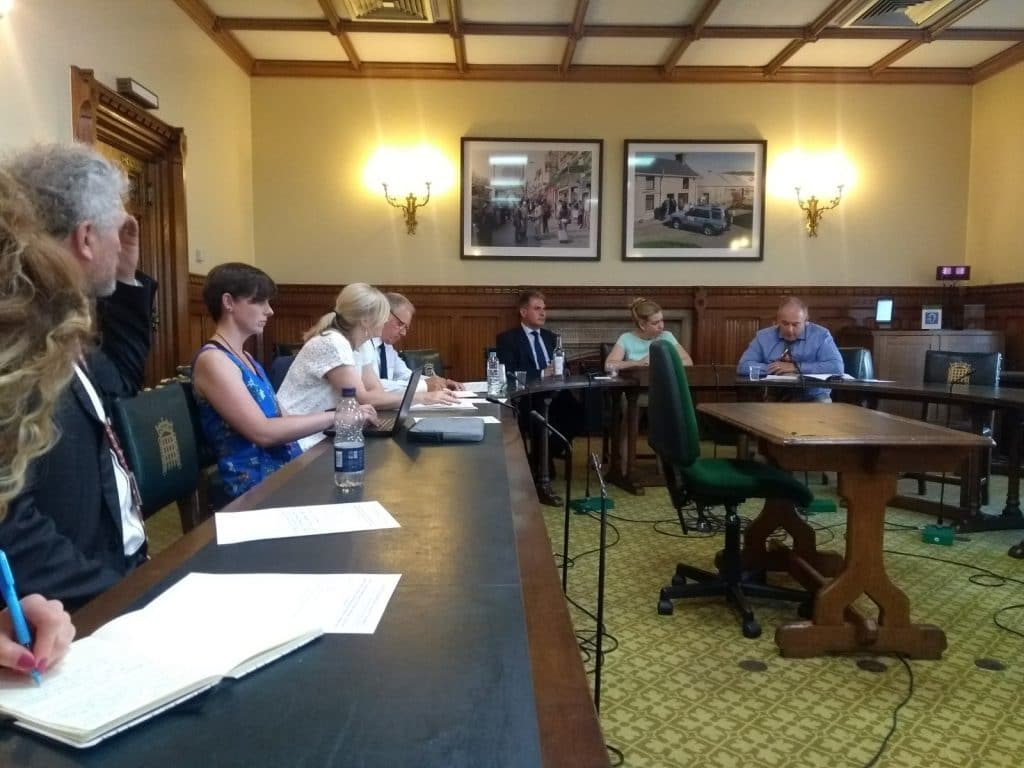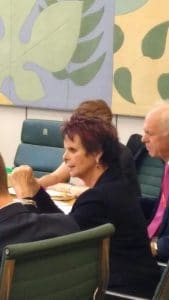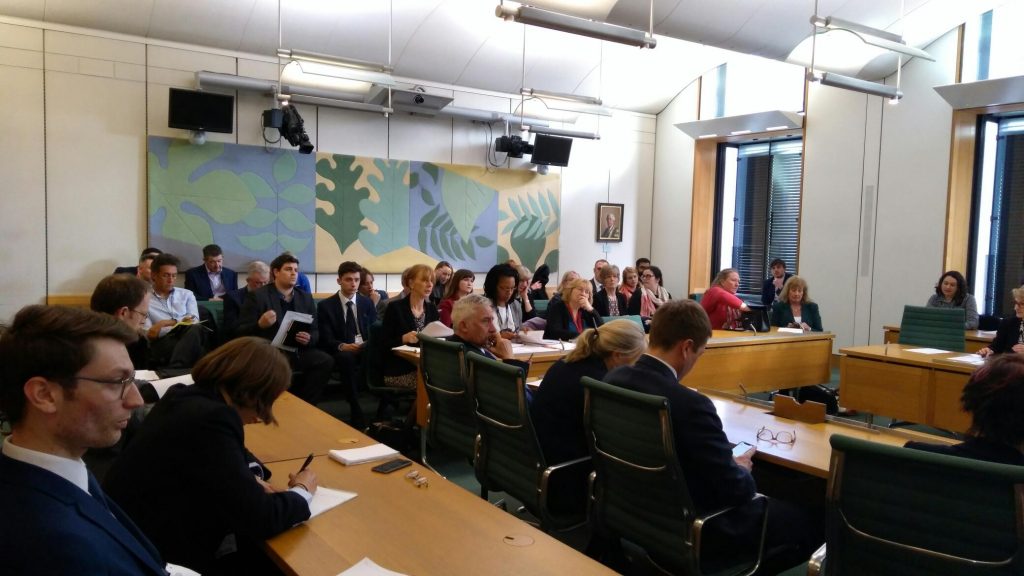On Tuesday the 26th of June, the APPG for Education was addressed by the Chair of the Education Select Committee, Robert Halfon MP.
After being introduced by Andrea Jenkyns MP, Robert Halfon told the APPG about his role as Chair of the Education Committee, describing it as ‘the best job in Parliament’. He talked about his desire for the Committee to address all aspects of social justice so that all children have the opportunity to climb the ladder of opportunity. He said that the Committee’s other priority is to examine productivity. Having chaired around 50 meetings, he is increasingly convinced that many aspects of the Committee’s work are interrelated, with links between education, social justice and productivity.

He talked about how cross-party consensus can be facilitated through the Select Committee, citing in particular his work with the Shadow Education Secretary to extend the entitlement to 30 hours free childcare to foster children. This stemmed from the Committee’s inquiry into fostering and culminated in a backbench business debate led by Lisa Nandy.
Halfon talked about the failure of the Social Mobility Commission. He said that he wants the Commission to have ‘real teeth’. He believes that every piece of legislation should be assessed against its ability to improve social justice and the Social Mobility Commission should have a role in enforcing that.
On the Committee’s inquiry into alternative provision, Halfon said that the Committee’s aim is to speak up on behalf of children who have ended up in alternative provision because they have been let down by the school system. [stats]
Referring back to the idea that all aspects of the Committee’s work are interrelated, Halfon talked about the SEND and school and college funding inquiries, which were launched at the same time. On funding, Halfon said the Committee wants to look at whether the school funding model should change; in the same way that the NHS has a long-term funding plan, so too should education. He said that one of the tragedies of the current funding set-up is that funding for high needs is often lost, which in turn contributes to high exclusion rates for children with SEND and children ending up in alternative provision who do not need to be there. The Committee’s SEND inquiry aims to look at the implementation of the 2014 Children and Families Act, a piece of legislation that is based on good ideas, but seems to have suffered from being put into practice.
Halfon talked about how the Committee is getting a wider range of people involved in its work, citing for example inviting children with experience of care to question the children and families minister in Committee sessions on the subject. He intends to keep inviting the subjects of Committee inquiries to not only attend sessions, but to actively participate.
Andrea Jenkyns opened the floor to questions from the audience.
Tracy Brabin MP started with a tribute to Robert Halfon’s willingness to work in a cross-party manner, highlighting in particular the backbench business debate on foster care. She also praised the work Halfon has done on special educational needs and disabilities. On childcare, she warned that the underfunding of the 30 hours free entitlement was leading to childcare providers turning away children with SEND. Robert Halfon said that, on early years, the Committee has launched a short inquiry on life chances. He also said that it was his personal view (not necessarily that of the Committee) that the National Audit Office should run an inquiry into whether the government’s current childcare commitments are deliverable as currently formulated. He highlighted the social injustice that working parents can access the 30 hours free childcare, but children from workless homes were denied the opportunity. He suggested cutting the tax credit threshold at which childcare support becomes available.
Cara Bleiman warned that a potential danger of having social justice at the forefront of education is that it results in too much focus on the attainment gap, which results in a narrowing of the curriculum. Halfon said that was an important point but added that social justice in the context of the Committee’s work is not just about educational injustice, but also about building social capital. When viewed in that way, narrowing the curriculum is also a social injustice. He asked whether GCSEs were really necessary and whether they resulted in a positive outcome for disadvantaged children.
Steve Hayes from the National Deaf Society said that the current school funding situation is resulting in a weakening of the application of the Equalities Act. He said that a third of Local Authorities have cut support for deaf children and asked Halfon to advocated for an increased focus on low incidence but high need children as part of the SEND inquiry. Halfon promised to look at the National Deaf Society’s submission to the inquiry.
Max Fishel from pdnet asked about the lack of consistency in the use of teaching assistants for SEND provision. Halfon said that he did not want to pre-judge the outcome of an open inquiry, but said that he would be cautious about having too prescriptive a policy on teaching assistants as different schools may find different uses for them that are more effective in their specific context.
Ji Li from Plum Innovations asked about apprenticeships. He said that many apprentices have followed the apprenticeship path because they have difficulty with exams. He asked why apprenticeships still involve sitting exams. Robert Halfon suggested that it might be a generalisation that all apprentices are bad at exams; the exams sat by apprentices are designed to be appropriate and achievable by the people with the right skills.
Tom Guy from GL Assessment said that the Committee is running a large number of open inquiries and asked what guarantee there was that the SEND inquiry in particular would have a real impact on government. Halfon outlined the process for what happens next now that the inquiry has received written evidence: the evidence will be sifted, the Committee will run evidence sessions designed to represent all views expressed in the written evidence (the first of which is Tuesday 3 July), the Committee will compile a report which will be debated in Parliament, and the Government will have to respond to the report.
Emma Skelton from the British Council asked whether the Committee was planning to revisit international education. Robert Halfon said that, as it had been the subject of a recent inquiry, the Committee had no immediate plans to revisit the topic.
Andrea Jenkyns concluded by inviting any participants who had not been able to raise a question to email the APPG for Education secretariat who would pass on the question.
Chair of BESA, Chris Ratcliffe, brought the meeting to a close with a vote of thanks.


